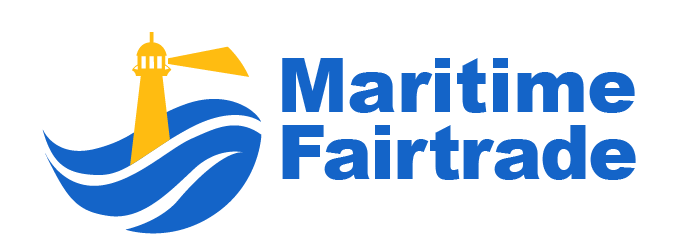The owner of the Dali, the massive cargo ship that lost power and knocked down the Key Bridge on March 26, killing six men, has declared “general average”, according to Darrell Wilson, a spokesperson for the ship’s owner, Grace Ocean. The incident has cost Baltimore a key bridge and massive disruption to the U.S. supply chain. For the cargo on board, the cargo owners face a prospect of massive additional costs as a consequence of the declaration of general average.
Another seminal incident was the grounding of the large container vessel Ever Given within the Suez Canal while transiting the Suez Canal on March 23, 2021, lodging herself against both banks of the waterway. The blockage caused vessels backed up in the Mediterranean to the north and the Red Sea to the south. Before the incident, the vessel sailed from the Malaysian port of Tanjung Pelepas. Not only did the incident expose the fragility of the shipping routes, it also demonstrated the principles of the law of salvage, in relation to the salvors claim in freeing the vessel. Similarly, the cargo owners had to pay higher additional costs because of the salvage.
There are some principles of maritime law which have no equivalent under normal contract law or land or air carriage. Situations like general average and salvage may arise during the maritime adventure and parties involved e.g., shipowner, cargo owner and charterer will need to be aware as when situations of general average or salvage occurs, they impact parties and their property.
Do cargo owners need to contribute to general average charges if the incident was the fault of the Dali? The short answer is yes, because the New Jason Clause invariably found the contract of carriage with owners of the Dali. The default position under U.S. law is that an owner is not entitled to the contribution from cargo when the event is caused by the owner’s or his agent’s fault or neglect. This is so even if U.S. COGSA applies to the voyage and the neglect or fault constitutes a defense under COGSA. The incorporation of a New Jason Clause in the contract of carriage changes this default rule.
General average
General average is part of the law of the sea founded on equity. It formed part of the Rhodian law, was based in earlier custom and existed many centuries before the existence of marine insurance. Rhodian law provided that, when cargo was thrown overboard to lighten a vessel, that which had been given for all had to be replaced by the contribution of all.
General average is all loss which arises in consequence of extraordinary sacrifices made or expenses incurred for the preservation of the ship and cargo losses within general average, and must be borne proportionately by all who are interested.
General average is covered under marine cargo insurance e.g., Institute Cargo Clauses (A) 1.1.82:
2. General Average Clause
2. This insurance covers general average and salvage charges, adjusted or determined according to the contract of affreightment and/or the governing law and practice, incurred to avoid or in connection with the avoidance of loss from any cause except those excluded in Clauses 4, 5, 6 and 7 or elsewhere in this insurance.
General average expenditure
Extraordinary expenditure incurred by the shipowner for the safety of the adventure may be recovered by him as a general average sacrifice, but he cannot recover all extraordinary expenses incurred for the purpose of continuing the voyage.
Thus, in the case of the Dali, the expense of discharging the cargo and landing while the vessel undertakes repairs and the costs of transhipping the cargo on board another vessel is a general average expenditure; but expenses incurred after the removal of the cargo, for example in connection with the refloating of the ship, are incurred to save the ship, and are not, as a general rule, for the preservation of the cargo; they must, therefore, be borne by the shipowner alone.
There may, however, be cases in which such expenses would fall under general average, as, for example, where the cargo would be lost unless it is carried on to its destination by the same ship, there being no other means of transport or disposal available, or where the discharging of the cargo and refloating of the ship form one continuous operation . Similarly, payment made to salvors employed by the shipowner may form the subject of general average if the safety of the whole adventure is involved.
Persons liable to contribute to general average
All persons whose interest in the adventure is benefited by a general average sacrifice or by a general average expenditure are liable to make a general average contribution. These persons are:
(1) the shipowner, who is liable in respect of the ship and also in respect of the freight;
(2) the charterer, if any, who is liable in respect of his interest in the bill of lading freight (in this case the shipowner’s liability as regards the freight is restricted to the chartered freight and, if the charterparty is by demise, the charterer is also liable in respect of the ship);
(3) the owner of the cargo, who is liable in respect of the cargo; and
(4) any other person who may be liable under some express term in the contract of carriage.
Salvage
The Malaysian Federal Court explained the law of salvage in the case of Fordeco Sdn Bhd v PK Fertilizers Sdn Bhd. In delivering the decision of the Court Tan Sri Nallini FJ explained:
The law on salvage
Salvage has been defined as a service which confers a benefit by saving or helping to save a recognized subject of salvage when in danger from which it cannot be extricated unaided, if and so far as the rendering of such service is voluntary in the sense of being attributable neither to a pre-existing obligation, nor solely for the interests of the salvor (see Kennedy & Rose, Law of Salvage, 6th edition, published by Sweet & Maxwell 2002).
Having said that, two points require clarification. The first is that this does not lay down a complete definition of salvage. The term should not be limited by a definition. Second, this definition describes salvage as it subsisted in earlier times. In more modern times, salvage is rendered more commonly by salvors under contract.
Ever Given and the Suez Canal
In March 2021, the large container vessel the Ever Given ran aground while transiting the Suez Canal on March 23, 2021, lodging herself against both banks of the waterway. The blockage caused vessels backed up in the Mediterranean to the north and the Red Sea to the south. It is estimated that the costs to global trade was about US$400 million per hour based on the approximate value of goods that are moved through the Suez every day, according to shipping data and news company Lloyd’s List.
The owners of the Ever Given had declared general average. This means that the costs of refloating and salvage of the ship is passed on to the cargo owners on board on rateable proportion depending of the value of each cargo owner’s cargo.
The claims of the salvors for the refloating of the vessel and freeing it from the Suez Canal was eventually brought to the English Courts and was decided by the Court of Appeal in the case of SMIT Salvage BV & others v Luster Maritime S.A. & another (Ever Given – salvage claim).
The critical issue in the appeal before the Court of Appeal was the contractual relationship between the owners of the vessel, (the appellants) and the salvors, (the respondents).
The Court of Appeal held that the decision to fix additional tugs after remuneration was agreed was not made because of contractual certainty, but in response to the failure of the refloating attempt of 26 March 2021, which put the Respondents in a strong commercial position, giving them a reasonable expectation of a salvage award, if the parties did not conclude a contract. As the salvage remuneration is not limited by the agreement of the parties, the salvor claim for more than pursuant to a negotiated services agreement for the same operation.
Furthermore, the Court of Appeal agreed that the decision to fix additional tugs after remuneration was agreed was not made because of contractual certainty, but in response to the failure of the refloating attempt of 26 March 2021, which put the Respondents in a strong commercial position, giving them a reasonable expectation of a salvage award, if the parties did not conclude a contract.
General average and salvage liens
In general average and salvage situations, the carrier has a right to lien the cargo unless the cargo owner pays the proportion of the general average and salvage expense. Where the cargo is insured under the usual ICC Clauses, both the provision of the bond and the final amount of general average and salvage is covered under the insurance policy.
Where there is no insurance cover the carrier is not obliged to accept a guarantee from the consignee goods owner. It may demand either a cash deposit or a bank guarantee to secure the rights of contribution.
Photo credit: iStock/ artisteer










